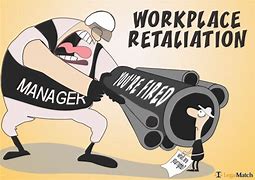Below is a review of the posts (on Facebook, LinkedIn, and Twitter) from the past week. You can check out the full posts by clicking on the links.

The posts on Sunday 12/25/2022, here, here, and here, wished you and yours a Merry Christmas.. And reminded you of the obligations to treat everyone the same in the workplace (with few legal exceptions) and timely remove holiday decorations from homes in a condominium or home-owners’ association.
TAKEAWAY: Sometimes it’s just that simple – Merry Christmas. And follow the applicable law and rules.

The post on Monday 12/26/2022 was about 3 important safety considerations to keep staff with epileptic seizures safe in the workplace. First, look at the stats: of the 3.4 MILLION Americans with epilepsy, 70% can manage without medication so an employer may not even know that an employee is an epileptic. But when they do, discrimination might occur. Epilepsy is described in the post. And what is an employer to do if they know about an epileptic employee? First, under-stand the nature of their condition (since there are various forms of epilepsy that are described in the post). The person will know how the epilepsy affects them. So what can an employer ask? See the post. Next an employer should identify triggers and work to eliminate them. One big example is in the post and should be easy to do. Other examples are also in the post – but check with the employee to see what they need as this can be so individualized. The last item thing an employer should do is also listed in the post along with how to accomplish it.
TAKEAWAY: Employers have the duty of keeping employees safe – and accommodating under the ADA if there is a need and request. This can include dealing with epileptic employees, so have a plan in case it becomes reality in your workplace.

The post on Tuesday 12/27/2022 showed us court says condo sellers cannot sue over association’s “excessive” documen-tation fees. In most states a seller has to provide certain documents to a buyer in a condominium (and homeowner) association. This suit started in 2016. Harry and Dawn Channon sold their condo and eventually sued the association (through its management agent) for excessive fees for those documents. The trial court judge did not grant the association’s motion to dismiss but sent the matter to the appellate court. How the issue was presented is in the post. The appeals court issued a decision in December 2021 that said the law at issue did allow sellers the right to bring the suit. The association then appealed to the state supreme court. It ruled at the end of November 2022. The association’s position is in the post and based on the applicable law. The statutory provision that was at the core of the suit is also noted in the post (and is similar to PA law). The court’s analysis of that statutory provision (and who it is intended to benefit) is in the post and is a good map for PA associations.
TAKEAWAY: Know what fees, dues or assessments your association can charge – get advice from a community association lawyer.

The post on Wednesday 12/28/2022 noted that fired hours (minutes?) after complaint about discrimination, employee LOST retaliation lawsuit. What? Yeah, so let’s look at the background of this PA case. Antwon Lane, a Black man, worked with the employer’s president and owner on a daily basis. One day, he was told he could not have his phone in the workplace. Lane said that he already had permission to use the phone to listen to music while working. But Lane apparently wasn’t satisfied and the next day he took it up with the owner again. What he said is in the post. The owner then responded – how is in the post. HR arrived and after a bit Lane was fired. Lane sued for retaliation. The elements of a retaliation claim are listed in the post (as required by law). Lane met the first two elements; only the third was at issue. But … there was evidence that saved the day for the employer. Timing can be everything. Here the evidence (described in the post) provided a sufficient defense for the employer that was not refuted by Lane.
TAKEAWAY: Make sure adverse action against an employee is supported by legally-valid evidence (in case you need to provide it in court). Get assistance from an employment lawyer to shore up your position.

In the post on Thursday 12/29/2022 we saw that Circle K reaches agreement to resolve EEOC charges. Circle K is an international string of fuel and convenience stores operating in 26 countries including the US. The suit that it just settled involves actions from July 2009 – September 2022 (no typos there). The EEOC brought the suit on behalf of disabled and pregnant employees for discrimination and retaliation. And what is Circle K alleged to have done? Made pregnant or disabled employees take involuntary unpaid leave and more as listed in the post. The actions by Circle K are alleged to have violated Title VII, the ADA and the Pregnancy Discrimination Act (PDA). The monetary relief – HUGE, see the post – will be split among those impacted by Circle K’s actions. It also must provide non-monetary relief including anti-discrimination training and more as noted in the post; this portion will be in place for 4 years.
TAKEAWAY: Make sure managers are trained in reasonable accommodation and how to fulfill the employer’s obligations. Make an employment lawyer available to them for legal questions/assistance.

The post on Friday 12/30/2022 examined why you need condo (or homeowners’) insurance when insurance is covered in HOA dues. There is really a simple explanation. The association, whether condominium (with attached units in one or more buildings) or homeowners (with some or all single-family units), insures what is owned by the association. These are referred to in the Declaration as common elements (sometimes subdivide into limited common elements, but still owned by the association. And what does the association’s insurance cover? The types of things noted in the post. Nowhere on that list is what the owner actually owns (the unit and its contents and any damages to it or in or from it). Owners need to read the Declaration (and Bylaws and Rules & Regulations) to see exactly what the association’s insurance is supposed to cover and make sure that insurance is actually in place – and that they (the owners) then get the insurance coverage they need for their property and any gaps they see (as described in the post). There are specific policies for the condominium or homeowners’ association context (noted in the post), so make sure that is what is purchased.
TAKEAWAY: Whether association or owner, contact a community association lawyer to make sure there is the required and appropriate insurance in place.

Finally, in the post yesterday 12/31/2022, we learned about new hipness in employment law: the right to bore and not be bored. This is seemingly at the opposite end of the spectrum from quiet quitting. Two cases, neither from the US but still analogous, hold our attention. The first case is about “C’est cool d’être ringard.” (English translation: “It’s hip to be square.”) There a court in Paris, France, ordered an employer to pay an employee it terminated in 2015 for “professional inadequacy” the US equivalent of $3,154.82 (with the possibility of a further HUGE recovery as noted in the post). Mr. T alleged that his employer terminated him because he was too boring. What he meant by that is detailed in the post (is this author the only one seeing shades of fraternity hazing?). In the US this might all be deemed a hostile work environment. We all know that unless there is a contract to the contrary, employers (in the US) have the right to fire employees for no reason (at-will employ-ment). But it probably does not go so far as to cover the employer in this case. How a US court might characterize this is noted in the post.
The second case is from Ireland: “Finnegans Asleep.” There a finance manager at Irish Rail sued his employer because his job is too boring. Dermot Alistair Mills alleged that the railroad took away almost all of his job duties in retaliation for a whistleblower complaint he made in 2014. He is still employed now; what his salary is and what he must do to earn it are noted in the post. How does Mills say he spends his paid days? See the post. (And yes, many will now feel the need to apply for his position.) Mills testified about his work situation and his typical “work” day since the retaliation, all of which is in the post. (And if you did not do it before, now more of you may be applying for his position.) Mills’ hearing is scheduled to resume in February. In the meantime, let’s go back to the US at-will employment doctrine. Could an employer legally take away an employee’s job duties as retaliation for some type of legally protected activity? Even if there is no liability for back wages and benefits (since the person is still getting their full compensation), the employer might still be liable for other things as noted in the post. Then there is the question of whether this situation might be construed as a constructive discharge (under the theory noted in the post) … which might then increase the chances of employer liability for the other things already discussed.
TAKEAWAY: Before taking what could even be construed as adverse action against an employee, ensure your legal footing and discuss it with an employment lawyer.

 York, Pennsylvania 17403
York, Pennsylvania 17403